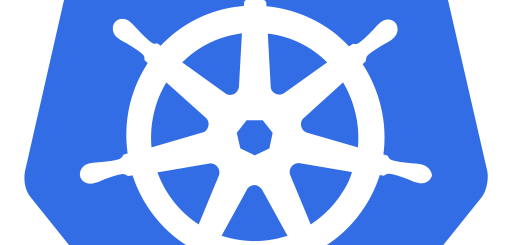Overview of (GCP) Google Cloud Platform Services
Google Cloud Platform Services are a suite of cloud computing services provided by Google. GCP offers a range of services to help individuals and organizations to build and manage their applications and services in the cloud.
This overview will explore the core categories of Google Cloud Platform Services, providing insights into how they can address various technical and business needs. From robust computing power and secure identity management to advanced big data analytics and machine learning capabilities, GCP offers a diverse toolkit for modern development and operations.

Figure 1 – Content provided by Google https://cloud.google.com/icons/
Google Cloud’s Core Compute Services:

- Compute Engine: A virtual machine (VM) hosting service that allows users to run their applications on Google’s infrastructure.
- Kubernetes Engine: A managed service that provides a container orchestration system to run and manage containerized applications.
- App Engine: A platform-as-a-service (PaaS) that allows developers to build and run web and mobile applications without managing the infrastructure.
- Cloud Functions: A serverless compute service that lets users run code in response to events without managing any infrastructure.
Identity and Security

- Cloud IAM: A service that enables users to manage access to Google Cloud resources by creating and managing policies and roles.
- Cloud Identity: A service that provides a single sign-on (SSO) solution for cloud applications and services.
- Cloud Key Management Service: A service that allows users to create and manage cryptographic keys for their cloud resources.
- Cloud Security Command Center: A security management service that provides visibility into security and compliance across Google Cloud resources.
- Cloud Armor: A distributed denial-of-service (DDoS) protection service that provides defense against web and network attacks.
Networking

GCP provides a comprehensive suite of networking services to connect your resources securely and efficiently.
- Virtual Private Cloud (VPC): Allows you to create your own isolated, private network within Google’s global infrastructure. You have full control over your IP address ranges, subnets, routing tables, and firewalls.
- Cloud Load Balancing: Distributes user traffic across multiple instances of your application, ensuring high availability and responsiveness. It can handle massive spikes in traffic.
- Cloud DNS: A scalable, reliable, and managed Domain Name System (DNS) service. It translates human-readable domain names (like
www.example.com) into IP addresses. - Cloud CDN (Content Delivery Network): Caches your website and application content closer to your users worldwide, significantly reducing latency and improving performance.
- Cloud Interconnect: Provides high-bandwidth, low-latency physical connections between your on-premises network and your Google Cloud VPC. Options include Dedicated Interconnect and Partner Interconnect.
For a full breakdown of GCP locations and networking, see Google Cloud website –
https://cloud.google.com/about/locations/
Big Data

GCP offers powerful tools to ingest, process, store, and analyze vast amounts of data.
- BigQuery: A fully-managed, petabyte-scale data warehouse. BigQuery allows you to run super-fast SQL-like queries on massive datasets. It’s serverless, so there’s no infrastructure to manage, and it scales automatically.
- Example: Retail companies use BigQuery to analyze sales data and customer behavior patterns to make informed business decisions.
- Cloud Dataflow: A fully managed service for stream and batch data processing. It’s excellent for building Extract, Transform, Load (ETL) pipelines and complex data analytics workflows.
- Cloud Dataproc: A managed Apache Spark and Apache Hadoop service. It allows you to run open-source data processing frameworks easily and cost-effectively.
- Cloud Pub/Sub: A real-time, scalable messaging service that allows you to send and receive messages between independent applications. It’s a key component for building event-driven systems.
Storage and Database

GCP provides a variety of storage and database options to suit different data types and access patterns.
- Cloud Storage: A highly scalable and durable object storage service. Ideal for storing everything from website content and data backups to large multimedia files and data for analytics.
- Cloud SQL: A fully managed relational database service for MySQL, PostgreSQL, and SQL Server. It handles tasks like patching, backups, and replication, allowing you to focus on your application.
- Cloud Spanner: A globally distributed, horizontally scalable, and strongly consistent relational database service. It combines the benefits of relational databases with non-relational horizontal scalability.
- Use Case: Perfect for applications requiring high availability and transactional consistency across geographies, like financial trading platforms or global inventory systems.
- Cloud Bigtable: A scalable, fully managed NoSQL wide-column database service. It’s suitable for applications that need to handle large amounts of analytical and operational data with low latency, such as IoT data or personalized recommendations.
- Cloud Datastore (now Firestore): A highly scalable NoSQL document database. Firestore is excellent for mobile, web, and server development, offering live synchronization and offline support.
- Cloud Filestore: A managed file storage service (NFS) for applications that require a file system interface and shared file storage.
Machine Learning

- AutoML: AutoML is a suite of tools that enables users to build custom ML models without requiring any prior experience in ML. AutoML provides various services, such as AutoML Vision, AutoML Natural Language, and AutoML Tables, that support specific use cases, such as image classification, text classification, and structured data analysis. Users can provide labelled data to AutoML, automatically training and optimising the ML model for the specific use case.
- Translation API: Translation API is a service that provides real-time translation between various languages. The service supports various use cases, such as website localization, customer support, and e-commerce. Users can integrate Translation API with their applications to enable real-time translation without requiring any language expertise.
- Natural Language: Natural Language is a set of pre-trained ML models that can be used for text analysis. The service supports various use cases, such as sentiment analysis, entity recognition, and content classification. Users can integrate Natural Language with their applications to enable text analysis without requiring any ML expertise.
- Speech-to-Text: Speech-to-Text is a service that provides a real-time transcription of spoken words into text. The service supports various use cases, such as voice commands, call centres, and dictation. Users can integrate Speech-to-Text with their applications to enable speech recognition without requiring any speech recognition expertise.
- Text-to-Speech: Text-to-Speech is a service that provides real-time conversion of text into spoken words. The service supports various use cases, such as customer support, voice assistants, and audiobooks. Users can integrate Text-to-Speech with their applications to enable speech synthesis without requiring any speech synthesis expertise.
AI
- Cloud AI Platform: Cloud AI Platform is a fully-managed service that provides a range of tools and services for building, training, and deploying ML models at scale. The service supports various ML frameworks such as TensorFlow, PyTorch, and sci-kit-learn and provides tools for data preprocessing, model training, and hyperparameter tuning. Cloud AI Platform also offers a range of deployment options, including online prediction, batch prediction, and custom prediction.
- Vision AI: Vision AI is a set of pre-trained ML models that can be used for image and video analysis. The service supports various use cases, such as object detection, face detection, and text recognition. Users can integrate Vision AI with their applications to enable image and video analysis without requiring any ML expertise.
- Video AI: Video AI is a set of pre-trained ML models that can be used for video analysis. The service supports various use cases like shot detection, object tracking, and content classification. Users can integrate Video AI with their applications to enable video analysis without requiring any ML expertise.
Management Tools
- Cloud Console: A web-based user interface that allows users to manage their GCP resources. The Cloud Console provides a central place for managing GCP resources and enables users to perform common tasks such as creating virtual machines, managing storage, and configuring network settings. The Console also provides access to various GCP services and features, such as billing and monitoring.
- Cloud Deployment Manager: A service that allows users to create and manage resources using templates and configuration files. With Deployment Manager, users can automate the creation and configuration of resources in GCP, such as virtual machines, storage buckets, and networking components. This enables users to create and manage resources consistently and reproducibly and also allows for version control and rollback of configurations.
- Cloud SDK: A command-line tool that allows users to interact with GCP resources and services from the command line. The Cloud SDK provides a set of tools and utilities for managing GCP resources and deploying applications, including the gcloud command-line tool for interacting with GCP services and the Cloud Shell environment for running commands in a browser-based shell.
- Cloud APIs: A set of RESTful APIs that allow users to access and manage GCP services and resources programmatically. The APIs enable users to automate tasks and integrate GCP services with other systems and applications. The APIs also provide programmatic access to monitoring and logging data for GCP resources.
- Cloud Identity and Access Management (IAM): A service that enables users to manage access to GCP resources by creating and managing policies and roles. With IAM, users can grant or revoke access to resources on a per-user or per-group basis and also create custom roles to grant specific levels of access to resources. IAM also provides audit logs to track changes to policies and roles..
Monitoring and Alerting
- Cloud Monitoring: A service that provides monitoring and alerting for GCP resources and services. With Cloud Monitoring, users can set up alerts based on metrics and logs and also view and analyze monitoring data using dashboards and charts. Cloud Monitoring also integrates with other GCP services, such as logging and error reporting.
- Cloud Logging: A centralised logging service for GCP resources and services. With Cloud Logging, users can collect, view, and analyze logs from various sources, including virtual machines, containers, and GCP services. Cloud Logging also integrates with other GCP services, such as monitoring and error reporting.
- Cloud Trace: A service that provides distributed tracing for GCP services. Cloud Trace lets users view and analyze trace data for requests and transactions across multiple services and components. Cloud Trace also integrates with other GCP services, such as monitoring and logging
Developer Tools
Tools to help you manage your resources and build applications efficiently.
- Google Cloud Console: A web-based graphical user interface (GUI) for managing your GCP projects and resources. It provides a centralized dashboard for most tasks.
- Cloud Deployment Manager: An infrastructure-as-code service that allows you to define and deploy Google Cloud resources using templates (e.g., YAML). This promotes automation and consistency.
- Cloud SDK (Software Development Kit): A set of command-line tools (including
gcloud,gsutil, andbq) for managing GCP resources and services directly from your terminal. Essential for scripting and automation. - Cloud APIs: RESTful APIs that allow programmatic access to manage and interact with GCP services, enabling integration with your applications and automation workflows.
- (Cloud IAM was listed here again but is primarily an Identity/Security service. Covered above.)
- Cloud Source Repositories: Private Git repositories hosted on Google Cloud, offering version control for your code.
- Cloud Tools for Android Studio, IntelliJ, PowerShell, Visual Studio: IDE extensions and tools to streamline development for GCP.
- Google Plugin for Eclipse: Similar IDE integration for Eclipse users.
- Cloud Build: A service that continuously builds, tests, and deploys your software across all languages and environments.
- Artifact Registry: A universal package manager for storing and managing your software packages (e.g., Docker images, Maven, npm packages).
API & Ecosystem Management
Services to create, secure, manage, and monetize APIs.
- Apigee API Management: A comprehensive platform for designing, securing, deploying, monitoring, and scaling APIs.
- Apigee API Monetization: Tools to create and manage API revenue models.
- Apigee API Analytics: Provides insights into API traffic, performance, and usage patterns.
- Apigee Sense: Protects APIs from malicious traffic and bots using behavioral analysis.
- Cloud Endpoints (now part of API Gateway): Helps you develop, deploy, and manage APIs on GCP. API Gateway is now the primary service for this.
Data Transfer
- Storage Transfer Service: Helps you import large amounts of online data into Cloud Storage from other cloud providers (like AWS S3), on-premises storage, or another Cloud Storage bucket.
- Transfer Appliance: A physical, high-capacity storage server you can rent from Google to securely transfer petabytes of data to GCP if online transfer is too slow or costly.
- BigQuery Data Transfer Service: Automates data movement from SaaS applications (like Google Ads, YouTube) and other cloud storage services into BigQuery on a scheduled, managed basis.
Conclusion: Why Choose Google Cloud Platform Services?
Google Cloud Platform Services offer a powerful, flexible, and scalable environment for a wide range of computing needs. From startups looking to rapidly prototype and deploy, to large enterprises needing to analyze vast datasets or modernize legacy applications, GCP provides the tools and infrastructure backed by Google’s global network and innovation in areas like AI and data analytics.
The pay-as-you-go pricing model, commitment to open source, and robust security features make Google Cloud Platform Services a compelling choice for businesses aiming to transform digitally and stay competitive.
Thanks for taking the time to read this comprehensive overview of Google Cloud Platform Services. If you have any questions, experiences to share, or feedback on this article, please leave a comment below! We’d love to hear from you.
Are you considering a move to the cloud or optimizing your current Google Cloud Platform Services usage? What challenges are you facing?




6 Responses
[…] is the command-line interface (CLI) for the Google Cloud Platform (GCP). Gcloud commands allows users to interact with GCP resources and services, including managing […]
[…] highly available, and blazingly fast NoSQL database, BigTable stands out in the vast landscape of GCP’s offerings. It’s no wonder that Google itself relies on BigTable for its flagship product, […]
[…] Google’s Cloud Datastore is a database platform that applications access directly through API calls, most commonly via the Google App Engine. Google is in the process of replacing Google Cloud Datastore with Google Cloud Firestore. Think of Firestore as the next-generation version of Datastore. […]
[…] Cloud Stackdriver, an advanced monitoring tool, offers comprehensive metrics and analytics for both Google Cloud Platform (GCP) and Amazon Web Services (AWS). This article presents an updated overview of Stackdriver, […]
[…] provider. First, you have the big 3 hyper-scale providers; market leader AWS, Microsoft Azure, and Google Cloud Platform. You also have countless smaller providers, bit why choose Google […]
[…] Ready-made business solutions, Premade APIs, AutoML, BigQueryML, AI building blocks: ML on GCP […]